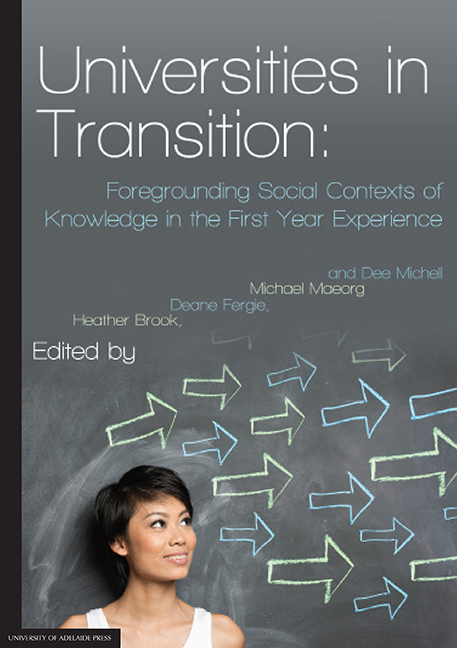Introduction
Published online by Cambridge University Press: 05 December 2014
Summary
For some time now the terms ‘transition to university’ and ‘first-year experience’ have been at the centre of discussion and discourse at, and about, Australian universities. For those university administrators, researchers and teachers involved, this focus has been framed by a number of interlinked factors ranging from social justice concerns — the moral imperative to foster the participation and success at tertiary level of ‘non-traditional’ students from socially diverse and educationally disadvantaged backgrounds — to the hard economic realities confronting the contemporary corporatising university. In the midst of changing global economic conditions affecting the international student market, as well as shifting domestic politics surrounding university funding, the equation of dollars with student numbers has remained a constant, and has kept universities' attention on the current ‘three Rs’ of higher education — recruitment, retention, reward — and, in particular, on the critical phase of students' entry into the tertiary institution environment.
In recent times, reforms launched by the 2009 Federal Labor Government (in office from 2007-13) sharpened the focus on student transition into university and the ‘three Rs’. The aim of those reforms was to increase the number of graduates between the ages of 25 and 34 years from 32 per cent of the population to 40 per cent by 2025.
- Type
- Chapter
- Information
- Universities in TransitionForegrounding Social Contexts of Knowledge in the First Year Experience, pp. 1 - 10Publisher: The University of Adelaide PressPrint publication year: 2014



